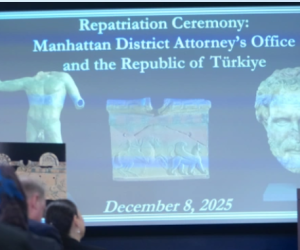13 words you probably did not know were invented by Shakespeare

Like Precalculus and Newton's laws, Shakespeare's plays are among the most groaned-about high school topics, begetting the complaint: "When will I ever need to know about this in real life?" Turns out, pretty often. Shakespeare can be credited for the invention of thousands of words that are now an everyday part of the English language (including, but not limited to, "eyeball," "fashionable," and "manager.")
In addition to his being a particularly clever wordsmith, Shakespeare's word invention can be credited to the fact that the English language as a whole was in a major state of flux during the time that he was writing. Colonization and wars meant that English speakers were borrowing more and more words from other languages.It's hard to say whether or not Shakespeare was the first to use many of these words, but in most cases he has long been believed to be the first to write them (although the widespread digitization of books has lead to a few interesting discoveries from earlier sources.)So before you dismiss Shakespeare as a stodgy, boring alternative to more contemporary writers, remember that you have him to thank for the popularization following words...and around 1,700 in total!GloomyDefinition: Somewhat dark: not bright or sunnyOrigin: "To gloom" was a verb that existed before Shakespeare converted the word into an adjective in a number of his plays. Quote: "Forced in the ruthless, vast, and gloomy woods?" - Titus AndronicusLaughableDefinition: Bad in a way that seems foolish or sillyOrigin: Derived from the verb "laugh."Quote: "Though Nestor swear the jest be laughable." - The Merchent of VeniceMajesticDefinition: Large and impressively beautifulOrigin: From "majesty," which appeared in the 1300s, meaning "greatness." "Majestical" was first used in the 1570s. Quote: "This is a most majestic vision" - The TempestLonelyDefinition: Sad from being apart from other peopleOrigin: "Alone" was first shortened to "lone" in the 1400s.Quote: "Believe't not lightly – though I go alone / Like to a lonely dragon that his fen -CoriolanusRadianceDefinition: A quality of brightness and happiness that can be seen on a person's faceOrigin: Derived from the Latin "radiantem," meaning "beaming."Quote: "For by the sacred radiance of the sun" - King LearHurryDefinition: Move or act with haste; rushOrigin: Likely derived from the verb "harry"Quote: "Lives, honors, lands, and all hurry to loss." - Henry VI Part 1GenerousDefinition: Freely giving or sharing money and other valuable thingsOrigin: From the Latin "generosus," meaning "of noble birth."Quote: "Free me so far in your most generous thoughts / That I have shot mine arrow o'er the house / And hurt my brother." - HamletFrugalDefinition:Careful about spending money or using things when you do not need toOrigin: From the Latin "frugi," meaning "useful, proper, worthy, honest."Quote: "Chid I for that at frugal Nature's frame?" - Much Ado About NothingCriticalDefinition: Expressing criticism or disapprovalOrigin: From the Latin "criticus," which referred specifically to a literary critic. Quote: "For I am nothing if not critical" - OthelloCourtshipDefinition: The activities that occur when people are developing a romantic relationship that could lead to marriage or the period of time when such activities occurOrigin: "Court" was first used to mean "woo" in the 1570s; prior, it was used to mean "king's court, princely residence," derived from the French "cort."Quote: "To courtship and such fair ostents of love" - The Merchant of VeniceZanyDefinition: Amusingly unconventional and idiosyncraticOrigin: Derived from the Italian "zani," which came from "Zanni," a version of the name "Giovanni."Quote: "Some carry-tale, some please-man, some slight zany" - Love's Labour's LostUndressDefinition: To take your clothes offOrigin: "Dress" comes from the Old French "dresser," meaning "prepare, arrange, straighten, put right." Shakespeare was the first to add the prefix "un-."Quote: "Madam, undress you and come now to bed." - The Taming of the ShrewRantDefinition: To talk loudly and in a way that shows anger: to complain in a way that is unreasonableOrigin: Derived from the Dutch "randten," meaning "talk foolishly."Quote:"I'll rant as well as thou." - HamletCLARIFICATION: This post has been modified to reflect varying views about the nature of word origins.(huffingtonpost.com)ANN.Az
Latest news 
More news 



































 Photo
Photo 



 Video
Video 

